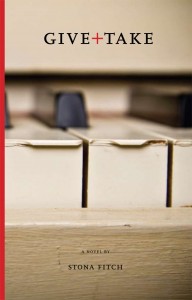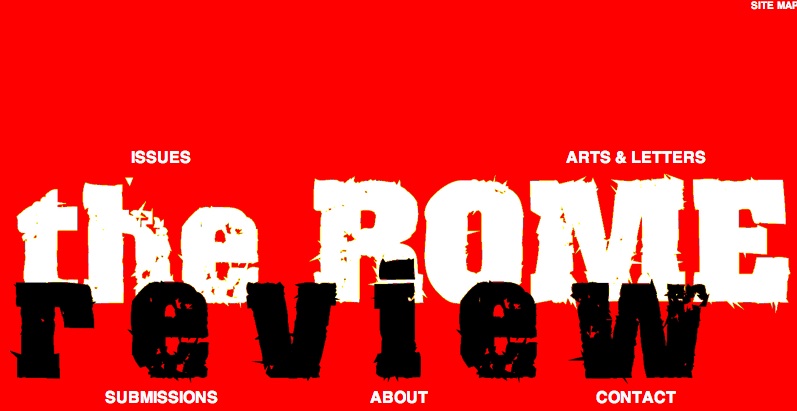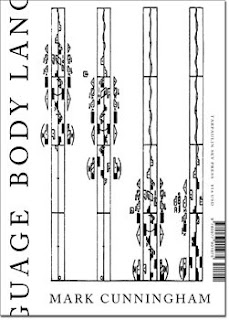MLP: 3 Reviews
I got the second batch of Mud Luscious Press chapbooks today, and read them excitedly. J.A. Tyler (editor) chose bright neon colors which, for me, reflected a certain kind of synthetic violence I found to be a unifying factor.

Rat Beast by Nick Antosca
[Spoil alert] This piece starts off fairly ‘normal,’ a first person narrative about a dour kid turned teenager having trouble at school. A Huxleyian counselor enters with treatment alternatives, the final of which takes a rather grotesque Kafkian turn (two name-drops, sorry), towards the eponymous animal. The ending is even more evocative due to the well-handled restraint in the writing.

Patience by Brandi Wells
A man carves the female reproductive system in the rind of an orange, creating a fetus in place of the fruit. At one point he “carves a fist beside the labia,” an allusion (in my sick mind at least) to fisting, or at least the manual ways women’s bodies are altered by patriarchal ideals (I’m so gay). Wells describes fallopian tubes wrapping around blades of glass and ants eating them; a kind of abortion detritus. J.A. Tyler plays well with the physical page break, embracing the most precious (bad word!) moment of the story.

In the Rape Year of the Ghetto Toddler the Houses Will Awaken by Blake Butler
To try to understand the title is to try to understand Butler’s writing, and I mean that in a good way. Butler is concerned with ideas, themes, and language–and how those three things cook down into meaning. He doesn’t explain it; but describes it, and he trusts the reader and himself enough to know that, through the thick confusion and minor nausea, his writing will be intuitively understood, and more importantly, viscerally manifested. Herein, rabbits live in bacon-greased arm sockets, wallpaper patterns dent cheeks, and a man is on vacation his whole life. Unabashed controlled chaos. Through the surrealism, I always get the feeling that Butler is talking about something less metaphysical, and more actual: an America today that might cause one to dry heave.
On a formal note, J.A. Tyler is marking MLP chapbooks with a signature ampersand in place of all ‘and.’
& it rocks.
FIRST EVER HTMLGIANT LITERARY CONTEST (NO ENTRY FEE)
Friends, this picture was provided to us by an anonymous friend of mine, who is an excellent and well-known publisher. S/he forwarded it to me yesterday, with the following message appended: >>this girl made fun of me in high school (pink dress)<<.
For the first ever HTMLGiant literary contest, you are invited to write an original piece of literature inspired by this photograph. Poetry, prose & indeterminate forms are all acceptable. Feel free to simply provide a caption, or to produce a short-short up to, say, 300 words. Leave your entries in the comments section of this post.
My anonymous friend will judge, and it will be up to him/her what–if anything–the winner receives.
Mean Monday: Christy Call Talks Shit About(3) the MFA in Creative Writing (for personal reasons)

This conversation did no go as I ‘hoped’ it would. I wanted Christy to talk shit about people who talk shit about MFA programs, but instead she just talked shit about MFA programs. She is hard to control, I admit.
Enjoy, I guess:
me: what should we talk about next?Chris: hmmi dont know/me: mfa programs?poeple who make fun of mfa programs?Chris: that sounds goodor programs that pretend to be mfa programs but arentlike my programthat now has an mfa programme: ?oh rightthey faked you outChris: haha yafake out!me: fake out!now give us your moenyagainChris: lots of itme: all of it
The situation at her university is this: she is enrolled in an MA program in creative writing, but the university has just started an MFA program very recently. I believe the MA program is in the continuing education department or something and requires less credits in order to complete the degree.
So, what do people think? Comment on stuff or something: talk shit about the MFA or talk shit about the shit-talkers. Complain about how boring such a discussion really is. Post recipes. I don’t know. Don’t do anything.
What tattoos do people have?
3 New Titles from Tarpaulin Sky
New from TSky, check and buy!
 Teresa K. Miller
Teresa K. Miller
Forever No Lo
Chapbook. Poetry
4″ x 4.75″, saddle-sewn, french flaps, 36 pages
November 2008
$10 includes shipping in the US
– click here for more info & images
– click here to order
Vehicular homicide, relationship dissolution by imperceptible degrees, genocide, terror by war, linguistic disorientation—though not equivalent, they interact in Forever No Lo, through the self-consciously philosophical and the mundane swallowing international crisis. The setting is Portugal, but it is also East Oakland, Rwanda, Chicago, Iraq, nowhere discernible. The language fragments multivocally in broken Portuguese, elementary French, and dialectical English. This serial poem asks what comes of global and personal tragedy—what grows, haunts, decays, redeems—in the gut, on the news, or from local communities.
 Brandon Shimoda
Brandon Shimoda
The Inland Sea
Chapbook. Poetry.
6″ x 8″, perfectbound, black endsheets, 40 pages.
November 2008.
$10 includes shipping in the US
– click here for more info
– click here to order
In remembrance of and in thinking through the grand and generative compromises of birth, migration, dementia, sacrifice and ancestor worship, The Inland Sea is a raveling entreaty for the life of both a family departed and a family spectrally present in both complex breath and body. Spiritually addressed to Midori Shimoda, as well as factually to the inland seascapes of his birth (Hiroshima, Japan, thrice, in 1909, 1910 and 1911) and death (Lake Norman, North Carolina, the United States, once, 1996), The Inland Sea navigates the substance between origination and departure, in an attempt to find a relic of responsible and radiant life outside of benighted time. Composed of doubts, dissolutions, laments and a widening circumference of water and hope, The Inland Sea is a soft, yet urgent, ceremony, through which the ruptures of the past might find celebratory echo, and keep—
ISBN: 9780977901975
Prose Poetry. 5″x7″, 136 pages
Perfectbound, tête-bêche
– Click here for more info
– Order here ($14 includes shipping in the US)
Two full-length collections of prose poems contained in Body Language, one titled Body (on parts of the body) and one titled Primer (on numbers and letters), together form a diptych investigating the body in language and language in the body.
Advance Praise for Body Language
In Mark Cunningham’s asymptotic collection, two discreet texts, Body and Primer, form a provocative, loopic continuum in which prose poems “defining” body parts (The Spleen, The Pituitary Gland, The Pimple, The Thumb) mesh with an abecedarium/cipher concerning topics as various as fate, reality, and phenomenology. With its trope of clue-like instruction and unique, flip-book embodiment, Cunningham‘s book creates a kind of hybrid detective f(r)iction, an intrepid mash-up of high and low cultures in which the reader is as likely to encounter Rilke and Proto-Sinaitic inscription as Lacan, Film Noir, The Three Stooges, cell phones, higher mathematics, binary thought, and Coyote and Road Runner cartoons. Cunningham pitches with surprising clarity the most abstract meditations (“The sperm cell is the first zero. The vagina the second. Wait—before you floated in the placenta (the third), your mother floated and your father floated in theirs, and before them their others and their fathers . . . . You get dizzy, as in that moment in Citizen Kane when Kane pauses after leaving his wife’s bedroom and image after image recedes in mirror reflecting mirror. Another thing about DNA: if space curves, so does time,” for example, from “O as a Beginning”), offering in almost reportorial style a (d)evolutionary mix of anachronistic, equally relentless somatic and figurative explorations of the body (“a paradise of sorts”) and the mind. Northrop Frye called a riddle “essentially a charm in reverse . . . the revolt of the intelligence against the hypnotic power of commanding words.” Cunningham’s work moves in this direction; as Frye would put it, “Poem and object are very quizzically related: there seems to be some riddle behind all riddles which we have not yet guessed.” These poems are not the mere game-playing of an extraordinarily gifted and restless intellect; stalked by pain, fear, guilt, and the burden of awareness,, they can also be tender, betraying a capacity for happiness: “I rarely talk about myself, but I’ll tell you this: one of the best days I’ve had was when I passed a cinema and decided right then to see The Cameraman. Another time, I switched restaurants at the last minute, and met an acquaintance there, and ate with her, and three years later we’re still going out.” As obsessed as they are with the ironies and processes of mind and body, the poet’s concern is ever with the mysteries this human armature holds up: “life itself.”
—Lisa Russ Spaar, author of Satin Cash and Blue Venus, and editor of Acquainted with the Night and All That Mighty Heart: London Poems.
About the Authors
Teresa K. Miller received her MFA from Mills College. Her work has appeared in Tarpaulin Sky, ZYZZYVA, Columbia Poetry Review, MiPOesias, Coconut, DIAGRAM, Shampoo, and others. Originally from Seattle, she currently teaches in Oakland.
Brandon Shimoda was born in California, and has since lived in five countries and nine states, most recently North Carolina and Montana. His writings have made appearances in Colorado Review, Denver Quarterly, Fence, jubilat, Octopus Magazine, Practice: New Writing + Art, TYPO, Verse and elsewhere, as well as in two recent book projects, Lake M (Corollary Press) and The Alps (Flim Forum Press). He currently lives in the state of Washington, where he takes part in the lives of both Slope magazine and Wave Books, among other takings, partings and taking-aparts.
Mark Cunningham lives in central Missouri. He is the author of 80 Beetles (Otoliths, 2008) and two chapbooks from Right Hand Pointing, Second Story and the forthcoming nightlightnight.
Free Novel? Yes, Free Novel
 I’m not sure I’ve ever seen this done before, but Concord Free Press is giving away their entire first printing – 1500 copies – of their novel Give and Take by Stona Fitch.
I’m not sure I’ve ever seen this done before, but Concord Free Press is giving away their entire first printing – 1500 copies – of their novel Give and Take by Stona Fitch.
Currently, there are less than 100 copies left.
The editors encourage people who request the novel to make a donation to a charity or person in need.
I’ve seen free e-books, but a free printed novel, no shipping, no cost, is an interesting idea. Is there some kind of catch? There doesn’t appear so.
Request your copy here.
Two Modest Proposals
PURITY BALL.
I think these new rules should be enstated, on HTMLGiant if nowhere else. They both have to do with terms we use and how we use them.
THE FIRST.
From this day forward, if you want to use the term SELLING OUT, you must needs be able to identify
(a) what is being sold out,
(b) to whom it is being sold, and
(c) what you believe the sale garners the seller.
If you don’t know all three of those things, or aren’t prepared to defend your choices, then you should stop talking/typing right now.

FATHERS HOLD THEIR DAUGHTERS' SMOOTH BARE TEENAGE SHOULDERS. STILL PURE. STILL A BALL.
THE SECOND.
I think the terms “innovative” and “avant-garde” and “experimental” writing are often just code for one of two things. The first is “non/anti-narrative”–which are both fine, if that’s what you’re into, but why not just say so? The other thing those words are often code for is “this bullshit I cranked out in 20 minutes and am going to start submitting as-is, and I guess one of these fourth-rate online lit journals is bound to pick it up.” (I think a lot of writers today go through a phase where they do shit like this—it’s a function of the age we live in, when submitting is usually one-click free, and every third person with a blog claims to be a “review” of some kind or other. The question is whether you grow out of it. And just to prove that this is the voice of bitter experience speaking, rather than a claim for my own intrinsic betterness or intelligence, I invite you to go search for the stuff I published a few years ago in Mad Hatters Review. Just don’t tell me about it after.)

THIS IS WHAT GOOGLE SAYS SILENCE LOOKS LIKE (WITH SAFE SEARCH ON).
Anyway, from now on, if you want to describe writing as:
“innovative” – I want you to be able to tell me in plain English what exactly is being innovated. It doesn’t need to be an exhaustive critical essay. A simple, “I think this opens up the possibility of ____ and/or shows a new innovation in the field of _______ literature” will do fine. In college I took a literature course which examined Marilynne Robinson’s innovative use of spaces–especially the domestic space–in her novel Housekeeping. My teacher also mentioned that the book actually includes a neologism- the word “lucifactions,” used to describe light on water, in the scene where the girls are out on the lake.

THIS IS AN INNOVATIVE WRITER.
“experimental” – you should be able to describe the experiment. “I wrote this to see if I could fabricate the feeling of a Burroughs cut-up without writing a text and cutting it up, so I made up three storylines and forced myself to switch off between them mid-sentence, twice a paragraph.” It also works when you’re talking about somebody else’s writing. “Dennis Cooper said that one of the ‘rules’ for his novel, Try was that there had to be action in every single moment of the book.”

THIS IS AN EXPERIMENTAL WRITER.
“avant-garde” – is a military term, which literally means “advance guard.” As Donald Barthelme once pointed out, the function of an advance guard is to protect the middle. It would probably be useful, when thinking of things that are avant-garde, to think of them in this way. What body are they advancing out of? What middle is it that they (or you) are protecting?

MADE THE WORLD SAFE FOR RAYMOND CARVER, WHO DID NOT RETURN THE FAVOR.
I’m not saying every use of these terms has to come with an attached explanation. I’m just saying these are things you should think about when deciding whether—and how—to deploy them. If you were also capable of discussing your thought process in conversation, well that would just be jimmies on the sundae, wouldn’t it?

I USUALLY CALL THEM SPRINKLES, JUST LIKE YOU DO.
Tomorrow’s Hemingway? Submit to The Rome Review

Via some other lit blog, I found this article, titled “Finding Tomorrow’s Hemingway,” about a new literary journal based at George Washington University. The new literary journal is called The Rome Review. Its founder, junior English major Tarek Al-Hariri, says, “It’s like the New Yorker with 1/100th the circulation.”
Other quotations from Al-Hariri include:
You can print today’s Hemingway. That’s not an accomplishment. We want to print tomorrow’s Hemingway.
And:
We tend to not stick with a formalist writing style.
I first thought to post about this because Al-Hariri claims that The Rome Review is an “avant-garde publication.” He wants to highlight “writers who use language in innovative ways.” This sounded promising to me: an innovative journal based out of a university. The article even mentions Ninth Letter as one of Al-Hariri’s influences. Exciting, right? But the first issue will include pieces by Junot Diaz and Seymour Hersh, which doesn’t strike me as either ‘avant-garde’ or ‘innovative.’
Sorry if I am, like Andrew Rigefsky, current editor-in-chief of the George Washington Review, a little skeptical. Rigefsky writes, in a letter to the editor, the following:
…it seems as though “Finding tomorrow’s Hemingway” is an advertisement for al-Hariri, not his magazine.
Side note: I’d love to see a feud develop between those two journals.
I realize I’m criticizing a new literary ‘venture’ without having first read an issue, and for that I am sorry. And I’m all for new lit journals and stuff, but I feel like a lot of literary journals seek to publish innovative writing and then fall back on ‘safe’ and ‘famous’ names when they realize how hard it is to stay afloat. It’s hard for a new journal to ‘make it’ without having some sort of claim to fame (balancing budgets requires seling issues, selling issues means building up some sort of audience, audiences tend to respond to big name authors), which is why so many solicit famous authors. I think I am trying to say something about intentions versus reality, but I’m not sure.
Anyhow, I hope The Rome Review proves me wrong.
Here’s the website. Submissions are now open. Send innovative work.
I don’t know. What do people think?
November 16th, 2008 / 7:53 pm
Google is the shit: ‘submission manager’
 I know lots of people only submit to journals that accept online submissions, which to me is kind of lazy, but who am I to point? Anyway, it can be hard sometimes to find journals that accept electronic submissions, esp. print ones. Even the Duotrope search feature isn’t that useful to me because they have so much junk in the way, it becomes a matter of sifting, and usually I give up.
I know lots of people only submit to journals that accept online submissions, which to me is kind of lazy, but who am I to point? Anyway, it can be hard sometimes to find journals that accept electronic submissions, esp. print ones. Even the Duotrope search feature isn’t that useful to me because they have so much junk in the way, it becomes a matter of sifting, and usually I give up.
Anyway, I just figured out that if you google ‘submission manager’, you get a handy list of journals that use that factory-standard and really nice login/upload machine. Doing so, I found a bunch of places I didn’t realize had upgraded.
Doing this leaves out the ones that use other electronic submission forms, such as email and etc., but if you’re looking for ‘big name’ journals and some other randoms, that google listing is pretty handy.
Including: Drunken Boat, Columbia, Ploughshares, AGNI, Pank, American Short Fiction, West Branch, Third Coast, Many Mountains Moving, Poetry, Kenyon Review, Opium, One Story, Boston Review, Indiana Review, Baltimore Review, Blue Earth Review, yadda yadda yadda.
You’re welcome. Lazyass.
November 15th, 2008 / 8:43 pm
ALL POINTS BULLETIN: Matt Hart to make Saturday worthwhile
Matt Hart, the genius author of Who’s Who Vivid and editor/publisher of the stellar Forklift, Ohio, will be appearing on The Joe Milford Poetry Show tomorrow, and I hope you will all tune in. Not only is Matt a great editor/publisher, and a fantastic poet, but he’s got a bar-none reading style that pretty much doubles the pleasure of what was already some of the best shit going these days. Don’t screw this one up.
November 14th, 2008 / 7:00 pm



